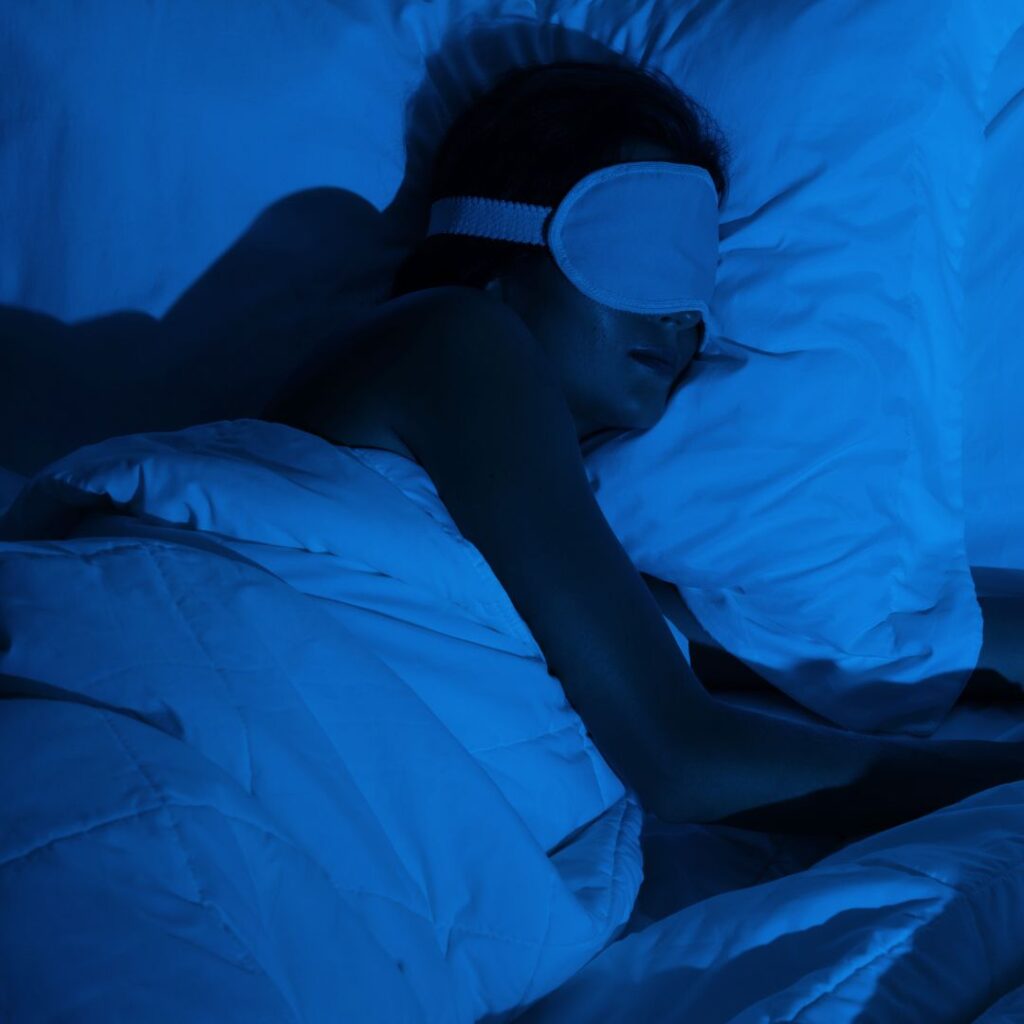Key Factors You Want To Know
|
How lengthy do you have to sleep at evening? The reply mostly given is: “7-9 hours”. This isn’t an inherently unhealthy reply; nonetheless, new analysis means that we is likely to be asking the flawed query.
As a substitute of caring with sleep length, an article revealed in Sport Sciences for Well being suggests we should always most likely be focusing extra on sleep regularity. This examine discovered that following regular bedtime and waking hours could be a larger predictor of well being and total mortality in comparison with sleep length.
If you wish to biohack your sleep, you have to learn this.
The Research: Sleep regularity is a stronger predictor of mortality threat than sleep length: A potential cohort examine (2024)
A 2024 examine revealed in Sport Sciences for Well being analyzed information from 60,977 adults within the UK Biobank.
These members wore wrist accelerometers for one week between 2013 and 2016, which objectively tracked their sleep length and sleep timing consistency. Collectively, this information is called the Sleep Regularity Index (SRI).
Mortality outcomes have been then tracked for roughly 6.3 years utilizing nationwide well being data.
The researchers analyzed this information to check the affect of sleeping patterns on mortality and total well being, particularly inspecting the consequences of sleep regularity versus sleep length.
Regularity vs. Period: What Did Researchers Discover?
- Sleep length refers back to the common variety of hours you sleep per evening (e.g., 6 hours vs. 8 hours).
- Sleep regularity measures how constant your sleep and wake instances are throughout days — for instance, going to mattress at 11 pm and waking at 7 am most nights.
Opposite to well-liked knowledge, the examine discovered that day-to-day consistency in sleep patterns was a greater predictor of long-term well being and mortality than simply sleeping “sufficient”. Researchers discovered that having a extra constant sleeping sample resulted in;
- All-cause mortality: 20%–48% decrease threat
- Most cancers mortality: 16%–39% decrease threat
- Cardiometabolic mortality: 22%–57% decrease threat
Extra fascinating is that these numbers have been extra important than the impact of getting ample sleep.
Actually, some indicators, similar to most cancers mortality, noticed no important distinction with variations in sleep length. This means solely sleep regularity was related to a lower in threat.
All in all, sleep regularity was a larger predictor of well being and mortality.
On this examine, these with sleep consistency within the high 20% had common sleep instances inside a 1-hour window. For instance;
- They went to mattress from 9–10 pm or 10:30–11:30 pm
- They wakened from 6–7 am or 7–8 am
Quite the opposite, these within the backside 20% had sleep instances inside a 3-hour window. This means;
- They went to mattress from 10 pm to 1 am or 11 pm to 2 am
- They wakened anytime from 5 am to eight am or 8 am-11 am
Subsequently, to optimize your sleep, researchers instructed that;
| “Aiming to go to sleep and get up inside 1-hour home windows every day could subsequently be a possible technique for bettering SRI (sleep)” |
Now, this doesn’t imply length has zero worth – you possibly can’t sleep from 1 am to five am each evening and anticipate to carry out optimally. It nonetheless appears that 6 hours of complete sleep stays minimal aim.
Why Would possibly This Occur? Our Circadian Rhythm
It’s possible you’ll not have heard of this earlier than, however researchers even have a reasonably good idea as to why this happens. It comes all the way down to our circadian rhythm, a physiological perform most of the people vastly underestimates.
The circadian rhythm is your physique’s inner 24-hour clock that regulates a ton of important organic processes, together with;
- Sleep
- Wakefulness
- Hormone launch
- Digestion
When your circadian rhythm is aligned, it typically ends in larger sleep, vitality, and total well being.
Nevertheless, disruptions can result in varied points tied to long-term well being and illness threat and are backed up in different analysis (Lunsford-Avery et al., 2018) (Trivedi et al, 2021). This consists of;
- Elevated threat of weight problems & diabetes
- Temper problems
- Weakened immune perform
- Irregular blood strain regulation
- Disruption in mobile restore processes
In different phrases, following a constant sleep schedule can regulate your circadian rhythm, which is wanted for optimized well being.
What Does This Imply for Your Well being?
This new analysis provides to our understanding of the significance of sleep. Along with complete sleep length, it now appears clear {that a} constant sleep schedule is simply as vital, if no more.
Subsequently, purpose for consistency whereas additionally optimizing length utilizing the 6-hour mark as your minimal threshold.
This info can truly be a aid to many people who battle with getting a full 8 hours of sleep each evening. Understanding that sleeping on the similar time brings important well being advantages makes it presumably a neater aim for some folks.
If you end up on the decrease finish of the sleep time spectrum, sustaining constant hours might assist offset a number of the adversarial results.
References
- Lunsford-Avery, J. R., Engelhard, M. M., Navar, A. M., & Kollins, S. H. (2018). Validation of the sleep regularity index in older adults and associations with cardiometabolic threat. Scientific Experiences, 8(1), 14158. https://doi.org/10.1038/s41598-018-32402-5
- Trivedi, R., et. al. (2021). Irregular sleep/wake patterns are related to diminished high quality of life in post-treatment most cancers sufferers: A examine throughout three most cancers cohorts. Frontiers in Neuroscience, 15, 700923. https://doi.org/10.3389/fnins.2021.700923
- Windred, D. P., Burns, A. C., Lane, J. M., Saxena, R., Rutter, M. Ok., Cain, S. W., & Phillips, A. J. Ok. (2024). Sleep regularity is a stronger predictor of mortality threat than sleep length: A potential cohort examine. Sleep, 47(1), zsad253. https://doi.org/10.1093/sleep/zsad253
